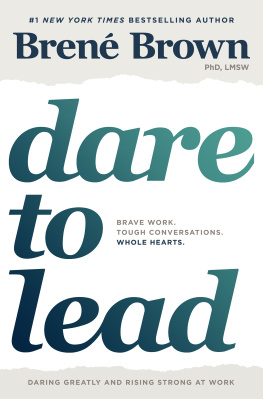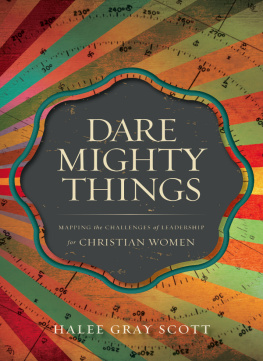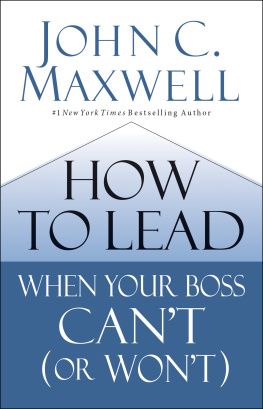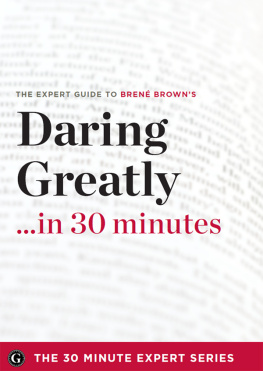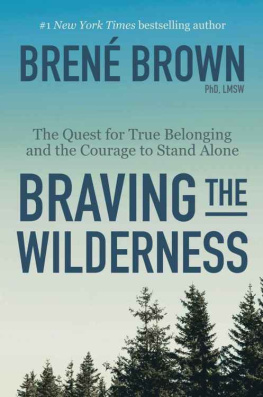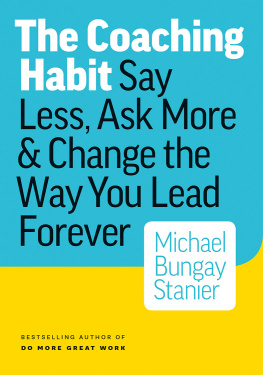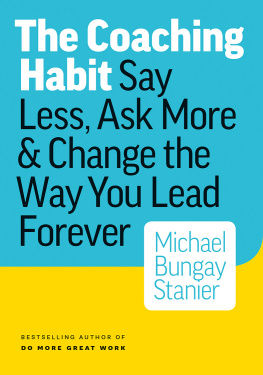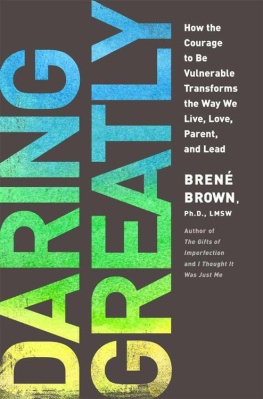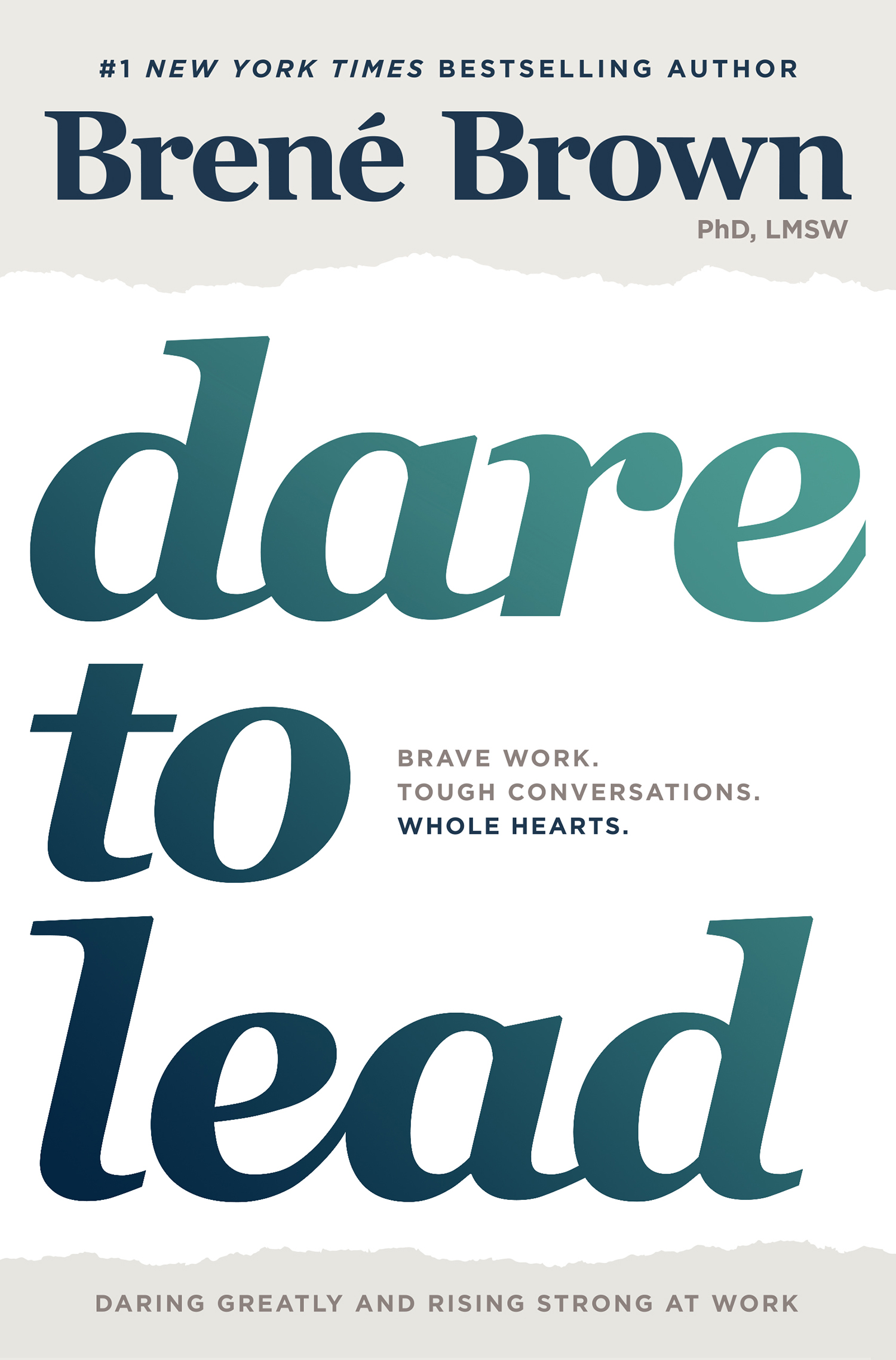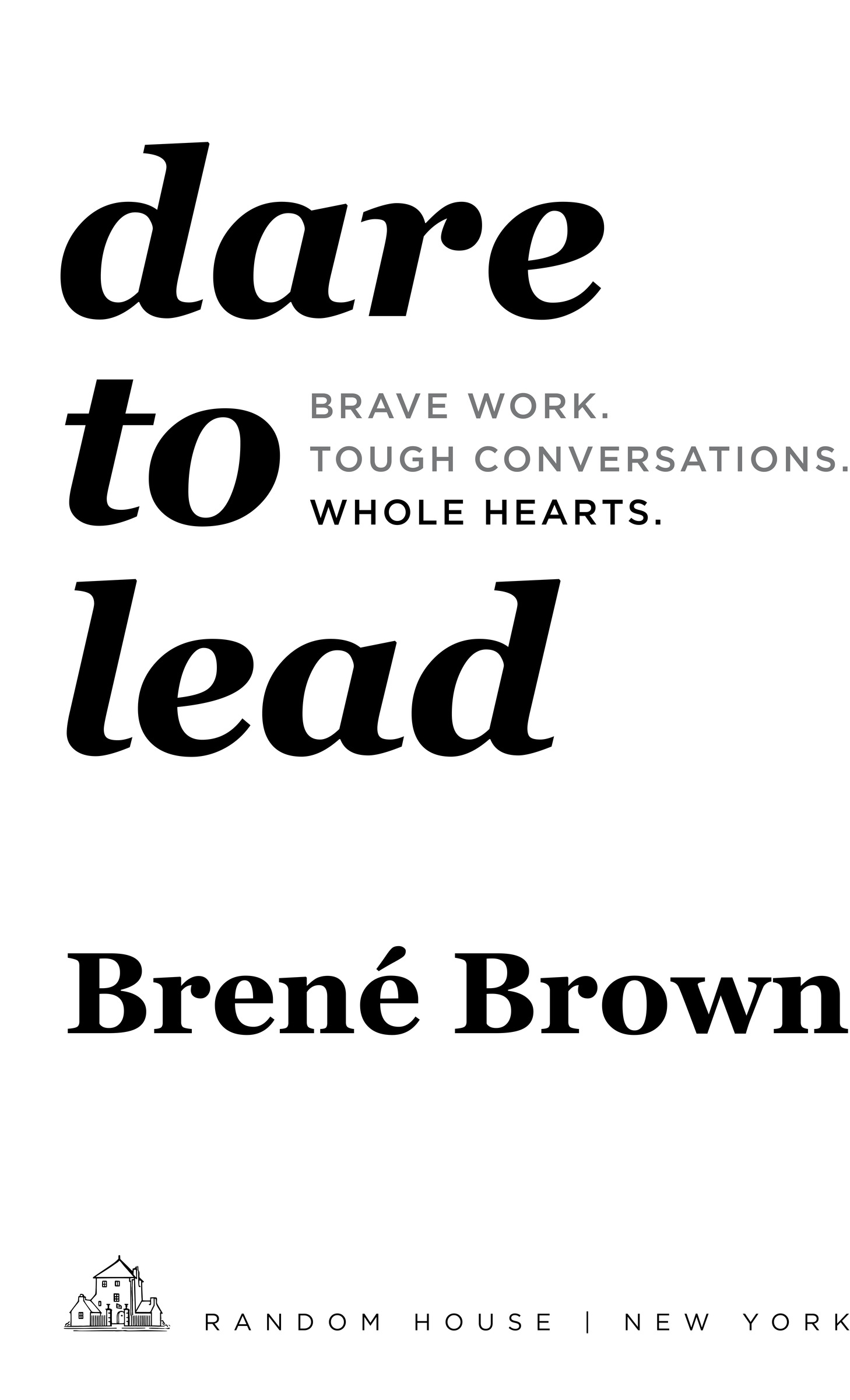This is a work of nonfiction. Nonetheless, some of the names and personal characteristics of the individuals involved have been changed in order to disguise their identities. Any resulting resemblance to persons living or dead is entirely coincidental and unintentional.
As of the time of initial publication, the URLs displayed in this book link or refer to existing websites on the Internet. Penguin Random House LLC is not responsible for, and should not be deemed to endorse or recommend, any website other than its own or any content available on the Internet (including without limitation at any website, blog page, information page) that is not created by Penguin Random House.
All rights reserved.
Published in the United States by Random House, an imprint and division of Penguin Random House LLC, New York.
R ANDOM H OUSE and the H OUSE colophon are registered trademarks of Penguin Random House LLC.
Names: Brown, Bren, author.
Title: Dare to lead: brave work, tough conversations, whole hearts / Bren Brown.
Description: New York: Random House, [2018] | Includes index.
Identifiers: LCCN 2018038094 | ISBN 9780399592522 (hardback) | ISBN 9780399592546 (ebook) | ISBN 9781984854032 (international edition)
Subjects: LCSH: Leadership.
People often ask me if I still get nervous when I speak in public. The answer is yes. Im always nervous. Experience keeps me from being scared, but Im still nervous. First, people are offering me their most precious gifttheir time. Time is, hands down, our most coveted, most unrenewable resource. If being on the receiving end of one of lifes most valuable gifts fails to leave you with a lump in your throat or butterflies in your stomach, then youre not paying attention.
Second, speaking is vulnerable. I dont memorize my lines or have a set shtick that I do verbatim. Effective speaking is about the unpredictable and uncontrollable art of connection. Even though its just me onstage and possibly ten thousand people sitting in folding chairs in a convention center, I try to look into as many pairs of eyes as I can. So, yes. Im always nervous.
I have a couple of tricks that Ive developed over the past several years that help me stay centered. Even though it makes event production teams crazy, I always ask for the stage lights to be at 50 percent. When theyre at 100 percent, you cant see the audience at all, and I dont like talking into the void. I need to see enough faces to know if were in sync. Are the words and images pulling us together or pushing us apart? Are they recognizing their experiences in my stories? People make very specific faces when theyre hearing something that rings true for them. They nod and smile and sometimes cover their faces with their hands. When its not landing, I get the side tilt. And less laughter.
I have another trick I use when anxious event organizers try encouraging me to up my game by describing the status of the audience members. An organizer might say, Hey, Bren, just so you know, the audience tonight includes top military brass. Theyll mention the high-level corporate leaders, elite members of this or that super special group, the top glass-ceiling breakers in the world, or, my favorite, These actually are rocket scientists who will probably hate what youre saying, so stick to the data. This strategy is often employed when the audience seems somewhat resistant because they dont know why Im there, or, worst-case scenario, they dont know why theyve been forced to be there with me.
In these cases, my strategy is a take on the classic picture the audience naked trick. Rather than picturing naked people sitting in auditorium chairs, which just doesnt work for me, I picture people without the armor of their titles, positions, power, or influence. When I spot the woman in the audience who has her lips pursed and her arms tightly folded across her chest, I picture what she looked like in third grade. If Im hooked by the guy who keeps shaking his head and making comments like Winners arent weak at work, I try to picture him holding a child or sitting with his therapist. Or, honestly, sitting with the therapist I think he should see.
Before I go onstage, I whisper the word people, three or four times to myself. People. People, people, people. This strategy was born out of desperation a decade ago, back in 2008, when I gave what I consider my first talk to a corporate leadership audience. I had lectured at grand rounds in hospitals and done many behavioral health talks, but the difference between those experiences and even just standing in that green room was palpable.
I was trying to find a place to set up camp in a room with twenty other speakers, each of us waiting to be called to do our TED-style twenty-minute talk at this day-long event, when that lonely feeling of not belonging and being out of place started washing over me. I first checked if it was a gender thing, because, to date, Im often still the only female speaker backstage. That wasnt it. It wasnt homesickness, because I was thirty minutes from my house in Houston.
When I heard the event organizers talking to the audience, I pulled back a small section of the heavy velvet curtains that separated the green room from the auditorium and peeked out. It was like a Brooks Brothers conventionrows of mostly men in white shirts and very dark suits.
I shut the curtain and started to panic. The guy standing closest to me was a young, super energetic speaker who, you could tell, had never met a stranger. Im not even sure what he was saying to me when I cut him off in midsentence: Oh, my God. These are all businesspeopleexecutives. Or FBI agents.
He chuckled. Yeah, mate. Its a conference for C-levels. Didnt they tell you that?
The blood drained out of my face as I slowly sat down on the empty chair next to me.
He explained, You know, CEOs, COOs, CFOs, CMOs, CHROs
All I could think was, There is no way Im going to tell this guy the truth.
He knelt next to me and put his arm on my shoulder. You okay, mate?
Maybe it was the Australian accent, or the big smile, or the name Pete that made this guy instantly trustworthy, but I turned to him and said, They did tell me it was a C-level audience. But I thought that meant down-to-earth. Like these are real sea-level people. Salt of the earth. S-E-A-level.
Through a huge, booming laugh he said, Thats brilliant! You should use that!
I looked him in the eye and said, Its not funny. Im talking about shame and the danger of not believing were enough.
There was a long pause before I added, Ironically.
By that time a woman from Washington, D.C., who was doing her twenty-minute talk on the oil trade, was standing beside us. She looked at me and said, Shameas in the emotion? Like Im

